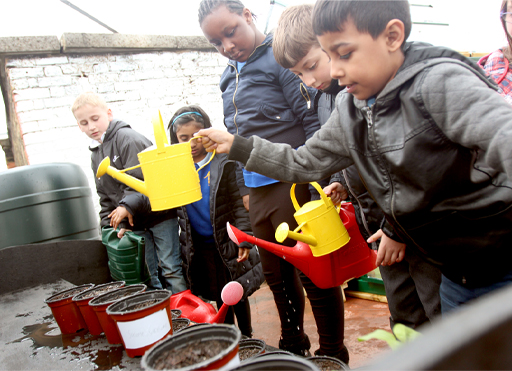Supporting climate action through digital education
Introduction and guidance
Introduction: the need for climate education
Welcome to this free course, Supporting climate action through digital education.
Climate change is repeatedly identified as ‘the defining crisis of our time’ (UNHCR, 2022) and it is happening even more quickly than we feared. No part of the world is immune from the impacts of climate change and it’s likely that you’ve experienced them yourself, perhaps in the form of heatwaves, flooding or food shortages. Vulnerable people living in some of the most fragile and conflict-affected countries are often disproportionately affected. Pessimism and fear are common responses to the climate crisis and while these emotions should be acknowledged they should also be challenged, as ‘we are far from powerless in the face of this global threat’ (United Nations, 2019).
Education has a vital role to play in mitigating the impact of climate change and in supporting individuals, communities and nations adapting to its effects. Students are concerned about climate change and want their education to equip them with the skills that reflect this.
Some climate-related education takes place within primary and secondary schools but it’s often minimal. When UNESCO (2021) reviewed the national curriculum frameworks of 100 countries, only 53% mentioned climate change. Most didn’t address the topic in any depth. The countries making the greatest effort tend to be those most vulnerable to the effects of the climate crisis, rather than those making the largest contribution to the problem.
In a survey of almost 7000 students by Students Organizing for Sustainability (SOS) International, a student-led education charity, 92% agreed that all universities and colleges should incorporate and promote sustainable development and 85% said they want to learn more about it (SOS International, 2021).
Teachers’ climate education skills are also a concern. In the UK, 70% of teachers don’t feel they’ve received enough training in this area (Teach the Future, 2021). We hope that this course will help you begin to develop the skills that you need.
After studying this course, you should be able to:
- critically reflect on the skills required to address the climate emergency
- identify ways of supporting your own and your learners’ wellbeing
- identify key ethical and moral considerations connected with the climate emergency
- design learning activities which support learners in understanding the causes and impacts of the climate emergency
- critically reflect on your own practice and identify ways to develop it further.

